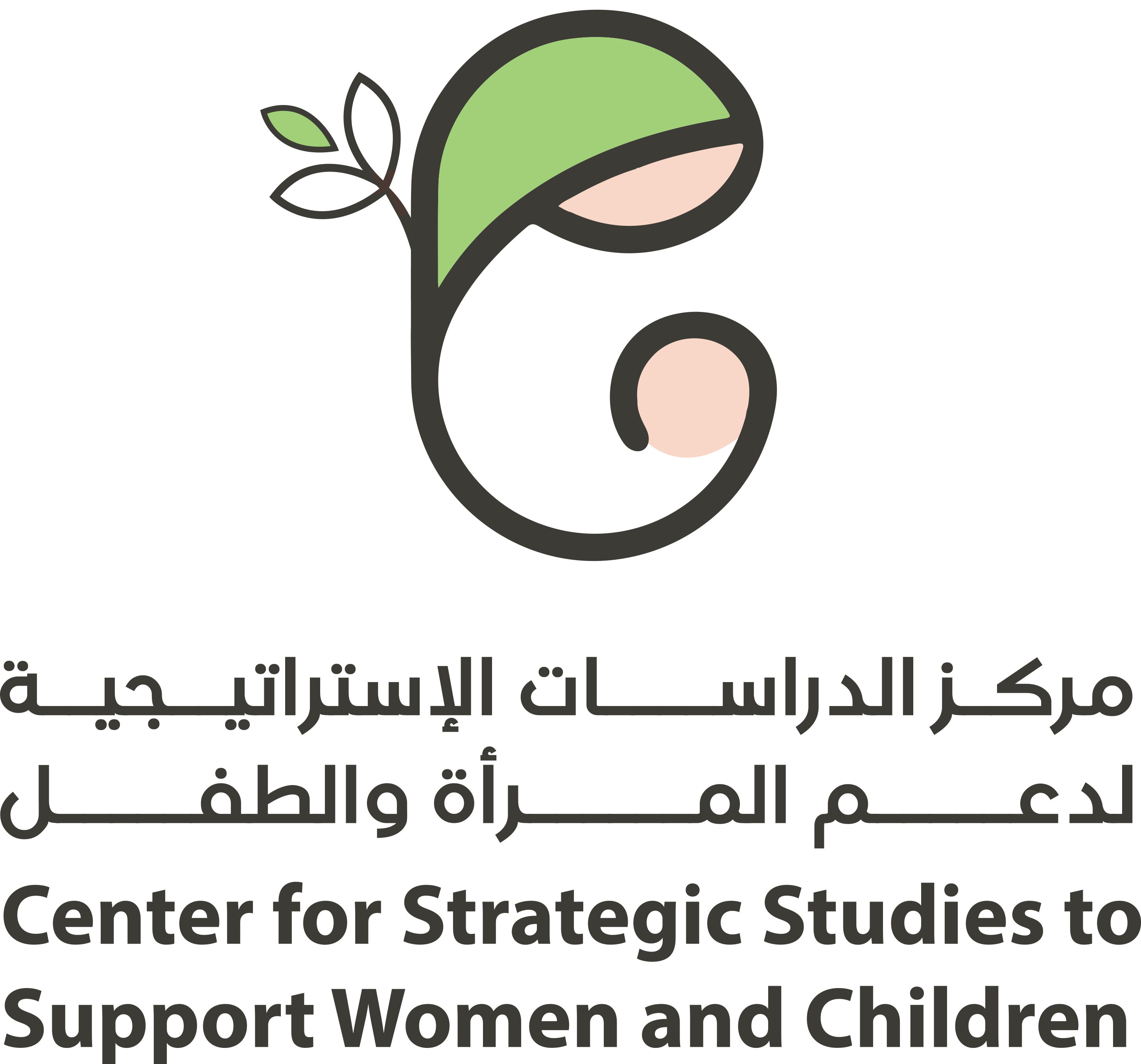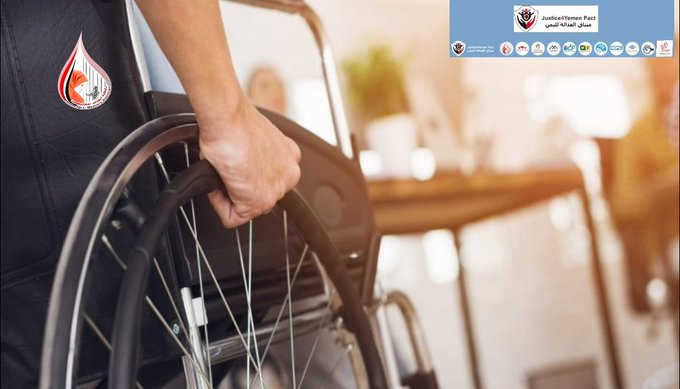International Day of Persons with Disabilities
International Day of Persons with Disabilities: Address their alarming situation and stand up for their rights in Yemen
December 3, Justice4Yemen Pact
The International Day of Persons with Disabilities is a reminder of the ongoing quest for human rights and dignity, particularly in Yemen, where the disabled population is enduring the challenges of conflict. This day underscores the universal call to recognize and address the specific vulnerabilities of persons with disabilities, advocate for inclusion and protect their rights and dignity.
The United Nations estimates that Yemen's four million citizens with disabilities face a multitude of problems as they are denied access to vital humanitarian assistance. They are often overlooked in intervention efforts and are not given a voice in political agreements. This underscores the urgent need for a more inclusive and rights-based strategy in both political negotiations and humanitarian discourse.
In Yemen, the widespread use of landmines and explosive remnants of war poses a serious threat, leading to devastating injuries and disabilities among the civilian population. These hidden dangers not only cause immediate harm, but also contribute to long-term disabilities and exacerbate the already difficult situation for people with disabilities in conflict-affected regions.
Although Yemen has signed the UN Convention on the Rights of Persons with Disabilities (CRPD), alarming reports indicate a worrying situation for persons with disabilities (PWDs) during the conflict. Humanity & Inclusion reports that efforts to implement a national strategy document to promote the rights of persons with disabilities have been halted since the start of hostilities in 2015.
According to a recent report by Amnesty, the outdated focus of Yemeni legislation on care and medical support, rather than a rights-based framework as set out in Law No. 61 (1999), highlights the need for a more progressive approach to inclusive education and healthcare. Although the Yemeni Constitution guarantees equality and the rights of persons with disabilities, the lack of explicit provisions against discrimination, especially in the labor law, is a crucial gap.
The conflict has exacerbated socio-economic vulnerabilities and deepened discrimination against persons with disabilities in various areas of life. The dysfunctional healthcare system, which affects 50 percent of the country, exacerbates the challenges, especially in maternal care. Furthermore, widespread displacement exacerbates the catastrophic situation. In many IDP areas, there is a lack of basic services that address the specific needs of people with disabilities. According to Humanity & Inclusion, 81% of people with disabilities feel unable to access humanitarian services.
4 of 2Page
Challenges also include the lack of data and research on the situation of people with disabilities, which makes targeted interventions difficult, as well as the persistence of a social stigma that leads to the isolation of people with disabilities. This situation is particularly acute for women and girls, who face additional challenges due to social norms and structural barriers, especially as internally displaced persons.
In addition, the rejection of the mandate of the Group of Experts on Yemen (GEE) in October 2021 further jeopardizes the lives of vulnerable persons, including persons with disabilities, and sends the message that people who violate the rights of the Yemeni people can act with impunity.
Recommendations:
Based on our knowledge, available data, reports and calls from human rights organizations and activists, we call for the following recommendations:
Encourage all parties in the Yemeni crisis to abide by international humanitarian law, cease unjustified attacks on civilians, and exercise caution in military operations.
Call for a halt to arms transfers until it is ensured that there are no grave violations of international humanitarian law or human rights law.
Call for an immediate halt to the use of landmines and explosive remnants of war in Yemen and emphasize the importance of protecting the rights and well-being of civilians, particularly persons with disabilities, by preventing further injury and disability from these indiscriminate and persistent weapons.
Call on the Yemeni government to revise national legislation and adopt a more rights-based approach in line with the CRPD.
Call for the amendment of discriminatory laws, especially in the labor law.
Advocate for people with disabilities, especially women and people with intellectual disabilities, to be represented on the boards of organizations and funds that serve their interests.
Encourage research institutions to provide more high-quality, timely and disaggregated data to enable targeted interventions.
Advocate for the integration of disability in all gender-specific policies and laws, actively involving associations of women and girls with disabilities.
Push for immediate action to provide comprehensive, quality and free education to all children with disabilities at all levels and ensure an inclusive learning environment.
Demand more services and capacity in community health care to support people with disabilities, especially in rural areas, marginalized communities and displaced people.
Advocate for the effective implementation of the 5% employment quota, raising awareness among public and private companies to provide individual support.
4 of 3Page
Demand meaningful participation of persons with disabilities and their representative organizations in decision-making processes, including participation in United Nations human rights mechanisms, peace agreements and the Office of the Special Envoy for Yemen.
Encourage donor agencies to increase aid for humanitarian action in Yemen, ensuring the inclusion of persons with disabilities and tracking progress through established standards and reporting.
Call for the needs of people with disabilities to be effectively mainstreamed in all areas and for assistance to be provided, including health and education.
Advocate for humanitarian organizations and agencies to better incorporate the rights of persons with disabilities into conflict-related humanitarian operations, prioritizing inclusion in camp management, decision-making and aid program development.
Call on all authorities in Yemen to ensure equal employment opportunities, cooperate with UN agencies and humanitarian organizations, and provide access to humanitarian assistance for persons with disabilities outside of registered camps.
Call on the Security Council to ensure that decisions on Yemen highlight the situation of persons with disabilities and request regular updates and enhanced monitoring measures in line with Resolution 2475.
Advocate for the promotion of inclusion of persons with disabilities in camp management, assistance programs and facilitating access to basic facilities. Establish comprehensive mechanisms for direct delivery of relief items to people's homes and closely monitor programs to avoid overlooking persons with disabilities.
The establishment of an independent accountability mechanism is essential for Yemen to achieve justice and ensure that those responsible for human rights violations are held accountable.
Include the rights of persons with disabilities in the framework of the peace negotiations to promote inclusion and address the specific challenges of this vulnerable population group.
Empower local human rights organizations in Yemen to effectively address the specific needs of marginalized groups, including persons with disabilities.
Signatory organizations:
1 .Abductees’ Mothers Association (AMA)
2 .Al-Amal Women’s and Sociocultural Foundation (AWS)
3 .Center for Strategic Studies to Support Women and Children (CSWC)
4 .Free Media Center for Investigative Journalism
5 .Marib Dam Foundation for Social Development (MDF)
6 .Musaala Organization
4 of 4Page
7 .SAM Organization for Rights and Liberties
8 .Studies and Economic Media Center (SEMC)
9 .Watch for Human Rights
10. Yemeni Coalition to Monitor Human Rights Violations (YCMHRV)
The Republic of Yemen

